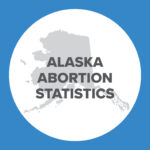U.K. Court Rules Against Participating in Assisted Suicide Case


On June 27, Noel Conway, a 68-year-old man suffering from a motor neurone disease, was denied assisted suicide by the United Kingdom’s Court of Appeal. Conway, who uses a wheel chair and requires assistance for breathing, has reportedly described his illness as making him feel “entombed.” In October 2017, Mr. Conway requested the ability to choose to end his life once given a six-month prognosis: “I do not wish to get to a stage where my quality of life is so limited, in the last six months of life, that I am no longer able to find any enjoyment in it.” His request was originally dismissed by a Divisional Court, after which he appealed the decision. This week, the Court of Appeal ruled 7-2 to dismiss Conway’s appeal, arguing in virtual unanimity that “in principle, Parliament [is] a better forum for determining the issue of legalising assisted suicide than the courts.” Conway now intends to take his plea to the U.K. Supreme Court.
Assisted suicide is currently illegal in the UK under section 2 of the Suicide Act 1961, which strictly prohibits committing acts that are “capable of” or “intended” to “encourage” or “assist” a suicide. Mr. Conway challenged the law by asserting that the ban on assisted suicide was incompatible with Section 1, Article 8 (“Right to respect for private and family life”) of the European Convention on Human Rights. In 2017, the Divisional Court concluded, “we find that section 2 is compatible with the Article 8 rights of Mr. Conway. We dismiss his application for a declaration of incompatibility.” In 2018, three senior judges ruled in favor of the Divisional Court’s previous decision, declaring the compatibility of the Suicide Act 1961 and Article 8 of the European Convention on Human Rights.
The Court of Appeal agreed with the Divisional Court about the “inadequacy of the proposed scheme to protect the weak and vulnerable, on the scheme’s failure to give proper weight to the moral significance of the sanctity of life and on the scheme’s potential to undermine relations of trust and confidence between doctors and their patients.”
Conway’s plea for assisted suicide was supported by the group Dignity in Dying, but faced opposition from disability and human rights groups including Not Dead Yet UK and Care Not Killing. Dr. Peter Sanders, campaign director of Care Not Killing, issued the following statement concerning the ruling:
This sensible decision by the Court of Appeal yet again recognizes that the safest law is the one we already have – a complete ban on assisted suicide and euthanasia. Our laws deter the exploitation, abuse and coercion of vulnerable people, who as we have seen in the US States of Oregon and Washington often cite feeling they have become a financial, or care burden as the reason for ending their lives.
According to the Oregon Death with Dignity Act 2017 Data Summary, 218 people were given prescription drugs to end their lives that year; as of January 2018, 143 of those people had ingested the fatal drugs. Since the inception of Oregon’s law in 1997, 1,275 people have died from fatal doses of prescription drugs. Similarly, Washington State’s 2017 Death With Dignity Act Report reveals that 164 patients died after ingesting lethal prescription drugs; the youngest to die was 33 years old. Since 2009, 1,007 people have died from ingesting lethal prescription drugs.
Charlotte Lozier Institute Associate Scholar Richard Doerflinger published an in-depth report on physician-assisted suicide in Oregon, concluding with the following:
Chronically ill seniors, potentially victims of untreated depression and the impression that they have become a “burden” on others, are nudged to a premature death that may be more gruesome than they’ve been led to believe, with no one usually present at the time of death to check whether they are competent, badgered by others, or overtly coerced toward that death. This is what has become known as “death with dignity” in Oregon, and advocates are working to spread it to far more states.
Oregon’s laws, and all physician-assisted suicide laws, threaten the most vulnerable populations including the elderly, terminally ill, patients diagnosed with unresponsive wakefulness syndrome, the mentally incompetent, and those in need of spoon-feeding or artificial nutrition and hydration. One hopes the U.K. will do the right thing: uphold laws to save countless vulnerable people from death by assisted suicide.
Hannah Howard, M.S. is a research associate for the Charlotte Lozier Institute.





















